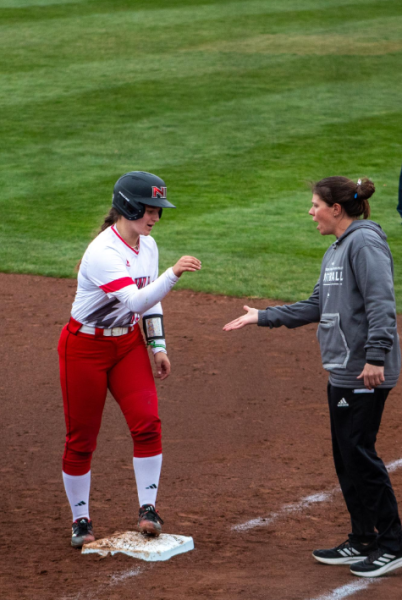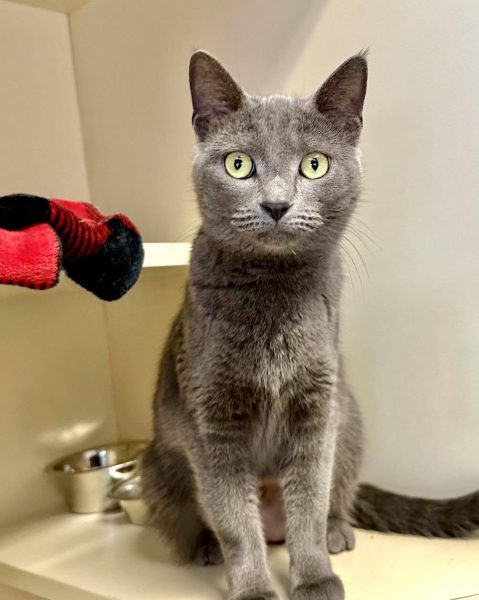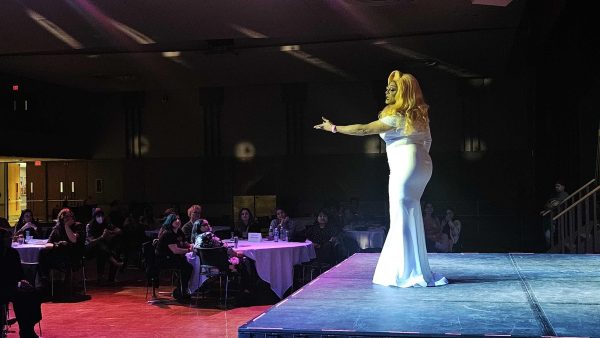Republican stigma unjustified
March 20, 2017
Anti-Republican backlash, which has grown nationally since Election Day, is reflective of challenges associated with being a Republican in President Donald Trump’s America. Challenges that make organizations like NIU College Republicans crucial in helping educate people on what Conservatives actually stand for.
Despite resounding victories on Election Day, I’m seeing a rather disturbing trend: Republicans being negatively stereotyped and shamed simply for being Conservatives. Much of this negativity seems to stem from comments made by President Trump.
While I am not a Republican, I’ve heard many of these negative stereotypes, both in person and on social media. I think these anti-Republican sentiments are unacceptable, which is why I think NIU College Republicans is such an important and an incredibly necessary group on campus.
An outlet for NIU Republicans
Dormant since the 2012 election, junior economics major Edward Bowie got together with some friends last year and worked to reestablish NIU College Republicans on campus.
“There was no organization to advocate for Conservative issues or Conservative students on campus,” said Bowie, chairman of NIU College Republicans. “There was no organization for those students to hang out and socialize with like-minded people, swap ideas and get involved.”
Jodi Schoenbein, secretary of NIU College Republicans, said that while NIU is a diverse campus, Republicans were not adequately represented before the group’s reestablishment. She said diversity should include all voices, which is why she opted to get involved with the group.
While I may disagree with many Republican policies — just as Republicans likely disagree with many of the policies I believe in — I do think it’s important Republicans and Democrats have an opportunity to express themselves free of judgement or shaming. Yet, that is what Republicans are facing.
Negative stereotypes abound
Since Election Day, one of the negative stereotypes I’ve heard frequently is that Republicans are racists. This blanket generalization has been applied to Republicans since Trump won the election, according to a Jan. 16 article in the Conservative Review.
I have been disturbed and disappointed by things Trump has said, but so have many Republicans. Republicans such as South Carolina Sen. Lindsey Graham, Arizona Sen. John McCain or Illinois Rep. Adam Kinzinger have made it clear that supporting the president does not mean they accept or condone everything he says and does. A sentiment echoed by NIU College Republicans.
Schoenbein says she has experienced anti-Republican backlash from friends, who sometimes write off her opinions or get so defensive that conversations are difficult.
She has also seen articles online which characterized people who voted for Trump as racist, anti-LGBTQ, or anti-Muslim—characterizations she finds offensive. She also says she’s faced negativity on social media for posting articles which discussed Conservative viewpoints.
“People would comment on it like ‘oh, this is so sad, I’m so sad for you’ or ‘I love you, but I hate that you think that way,” said Schoenbein. “There were tons of articles that people shared that I did not agree with whatsoever, but that’s their right to publish it, so I didn’t comment on it … I let them have their freedom of speech.” She notes it was disappointing that people did not afford her the same freedom.
Bowie says he’s also come across this negative stereotype of Republicans as racists.
“We encounter it left, right and center,” said Bowie. “I even encounter it from people who I’m otherwise friends with and that makes me sad that they’re that easily gulled … when you don’t see it directly, you run the risk of being harassed on the internet.”
While people are quick to attack Republicans with such vitriol, Bowie notes that there isn’t a coherent argument for such sentiments.
“It’s emotionality versus logic,” said Bowie. “When someone comes up to me and says ‘you’re a racist bigot,’ I have to tell them ‘well I think you’re a jerk for saying that, how dare you, you have no legs to stand on here, but if you want to have a conversation about an actual issue, let’s sit down and get a cup of coffee or let’s go get a beer.’”
Open dialogues needed
Stereotyping people is a dangerous and destructive practice. Instead of writing people off simply for having an opposing viewpoint, we should be engaging each other in discussions. Even peaceful protests accomplish more than shaming or stereotyping.
“I do appreciate people who have healthy protests. I think it’s very important for people’s voices to be heard, regardless of my own political background,” said Kelly Strauf, vice chair of NIU College Republicans. “Like the women’s march, I thought that was a beautiful thing for women to do. It’s extremely important for their voices to be heard as much as a man’s.”
I support peaceful protests. I support healthy debates. Both are helpful in allowing people to express their opinions and discuss their differences. I wholeheartedly condemn all the negative stereotypes being hurled at Republicans.
As a Democrat, I would not expect to be judged based on the actions or words of Hillary Clinton, even though I voted for her. This misguided belief that all Republicans should be judged for the actions or words of Trump is unacceptable.
The most useful way to combat stereotypes or misinformation is through education. I encourage students to start having open dialogues with people who have opposing viewpoints and discuss the differences. It is through this process that these unjustified stereotypes can be discarded and progress can be achieved.












